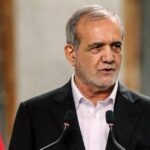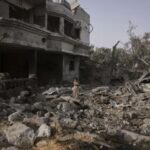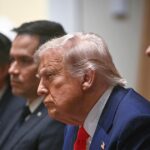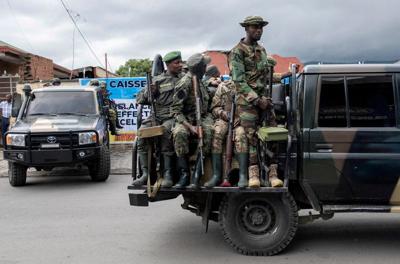NEW YORK (Reuters) – Rwanda has been exercising command and control over the M23 rebels during their significant advance in eastern Congo, according to a confidential report by United Nations experts. This development has allowed Rwanda to gain both political influence and access to mineral-rich territories in the region.
The report, which has not been made public, sheds light on the complex dynamics between Rwanda and the M23 rebels, a group that has been active in the Democratic Republic of Congo’s eastern provinces. The findings suggest a deeper involvement by Rwanda in the ongoing conflict, raising questions about regional stability and international diplomatic relations.
Background of the M23 Rebellion
The M23 rebellion, named after the March 23 peace agreement that the rebels claim was violated by the Congolese government, has been a persistent issue in the region. The group initially emerged in 2012, composed mainly of former members of the National Congress for the Defence of the People (CNDP), a militia group that was integrated into the Congolese army following a peace deal.
Historically, the eastern Congo region has been plagued by violence due to its rich deposits of minerals such as gold, tin, and coltan, which have attracted various armed groups seeking control. The involvement of neighboring countries, including Rwanda, has often been alleged but rarely substantiated with concrete evidence until now.
UN Report Findings
The UN experts’ report provides a detailed account of Rwanda’s alleged role in the M23’s operations. According to the findings, Rwanda has been involved in planning and executing military strategies, supplying arms, and providing logistical support to the rebels. These actions have reportedly facilitated the M23’s territorial gains in eastern Congo, allowing them to control key areas rich in natural resources.
“Rwanda’s involvement has shifted the balance of power in the region, enabling the M23 to establish a stronger foothold and challenge the Congolese government’s authority,” the report states.
The report’s revelations have prompted international reactions, with calls for a thorough investigation and potential sanctions against Rwanda if the allegations are confirmed. The United Nations Security Council is expected to discuss the findings in an upcoming session, highlighting the international community’s concern over the situation.
Regional and International Implications
The implications of Rwanda’s alleged involvement are significant, not only for the Democratic Republic of Congo but for the entire Great Lakes region. The area has a history of ethnic tensions and conflicts, often exacerbated by cross-border interventions. Rwanda’s actions, as outlined in the report, could potentially destabilize the region further, leading to increased violence and displacement of civilians.
Experts in international relations and conflict resolution have weighed in on the report’s findings. Dr. Anneke Van Woudenberg, an expert on Central African conflicts, noted, “If the allegations are true, Rwanda’s actions could undermine regional peace efforts and complicate diplomatic relations between Congo and its neighbors.”
Meanwhile, human rights organizations have expressed concern over the humanitarian impact of the conflict. The United Nations High Commissioner for Refugees (UNHCR) has reported a surge in the number of displaced persons in eastern Congo, with thousands fleeing their homes due to the ongoing violence.
Looking Ahead
The international community is closely monitoring the situation, with potential diplomatic and economic consequences for Rwanda. The United States and the European Union have both indicated that they are reviewing their policies towards Rwanda in light of the report’s findings.
As the United Nations prepares to address the issue, the focus will be on finding a sustainable solution that ensures peace and stability in the region. The Congolese government, for its part, has called for increased international support to combat the M23 rebels and restore order in the affected areas.
The coming weeks will be crucial in determining the next steps, as stakeholders work to address the complex challenges posed by the M23 rebellion and Rwanda’s alleged involvement. The outcomes of these discussions could have far-reaching implications for regional security and international relations.
 Trump Casts Doubt on US-Japan Trade Deal Amid Tariff Tensions
Trump Casts Doubt on US-Japan Trade Deal Amid Tariff Tensions Iran Halts Cooperation with UN Nuclear Watchdog Amid Rising Tensions
Iran Halts Cooperation with UN Nuclear Watchdog Amid Rising Tensions Hamas Open to Ceasefire with Israel Amid Demands for War’s End in Gaza
Hamas Open to Ceasefire with Israel Amid Demands for War’s End in Gaza Inside Trump’s Unconventional West Wing: A Hub of Activity and Influence
Inside Trump’s Unconventional West Wing: A Hub of Activity and Influence Bryan Kohberger’s Expected Plea Deal in Idaho Student Killings Raises Unanswered Questions
Bryan Kohberger’s Expected Plea Deal in Idaho Student Killings Raises Unanswered Questions